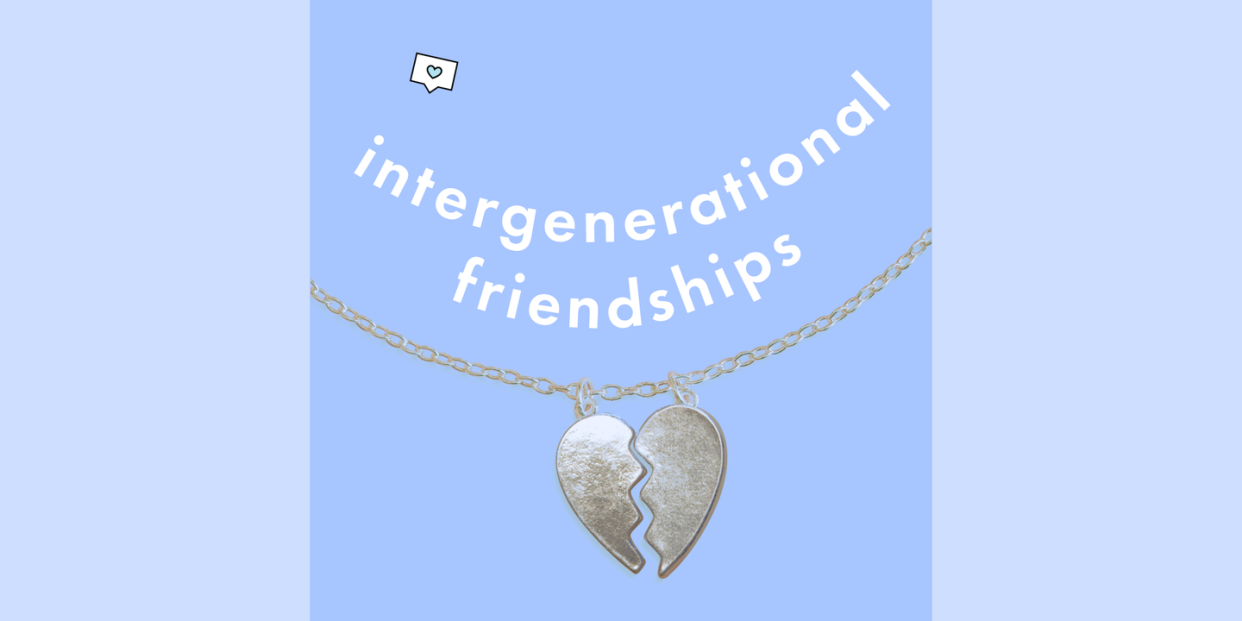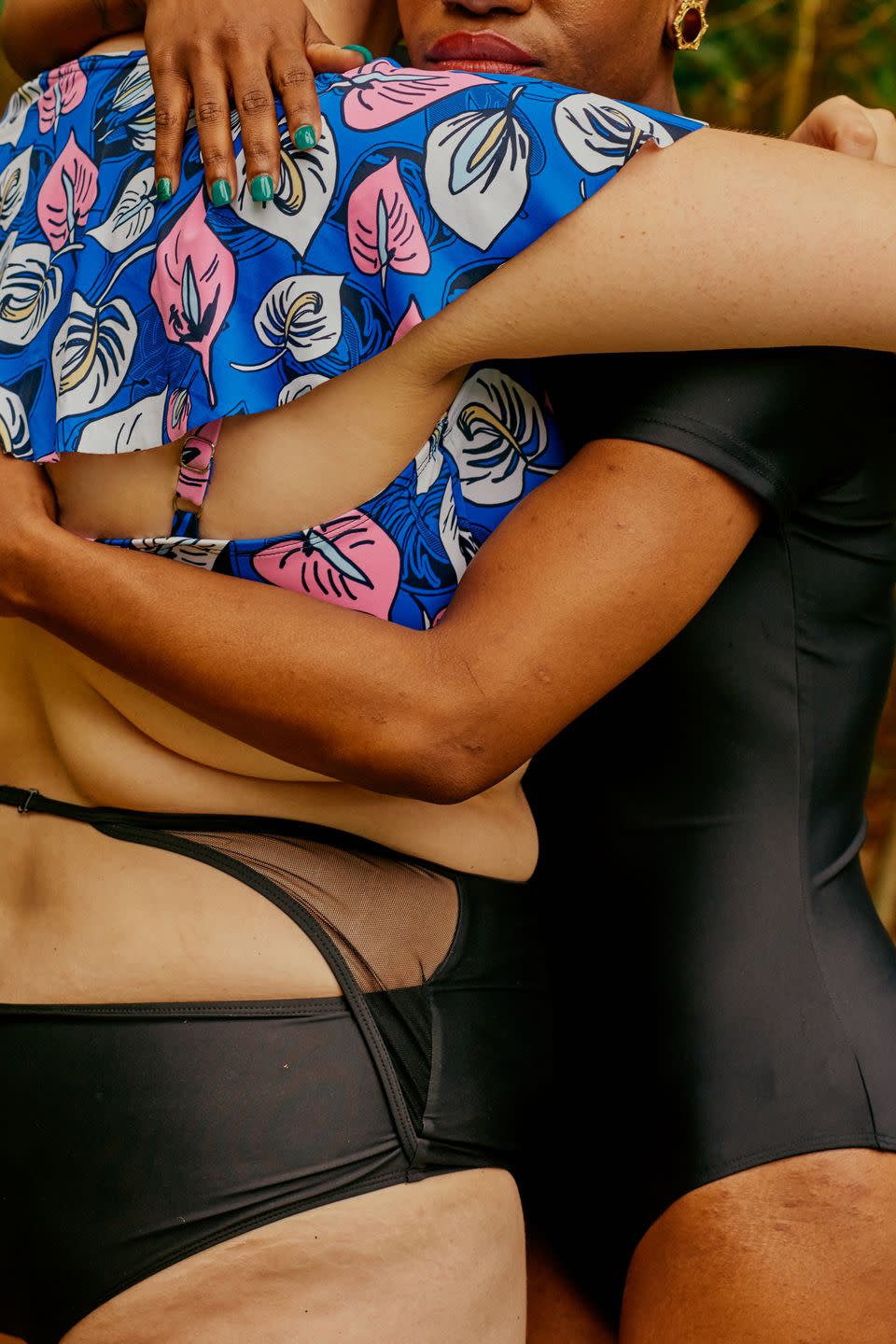The power of intergenerational friendships


One of my very favourite people is my very cool friend Daisy. We met when she was fresh out of drama school, I had just come out of a decade-long relationship, and we immediately got on like a house on fire. Whenever we'd see each other, we'd often end up in a club her DJ boyfriend happened to be working at, and we would dance until four in the morning.
The fun fact here is that I’m old enough to be Daisy’s mother. Truth be told, on these frivolous nights out I’m old enough to be everyone’s mother. I know what you’re thinking as you’re clutching your chest, “Poor, pathetic, middle-aged woman, pretending to be down with the kids.”
But wait.

When I was a teenager, I had singing lessons. My teacher was called Frau Braun, and she was a terrifying woman in her early 60s. She was the first adult to ever ask me questions and be interested in my answer. We both loved music and the theatre, and we often went to see concerts and plays together.
When I moved to the UK, we wrote to each other regularly, and whenever I was in Germany, she’d invite me to her house, and we’d sit in her garden, eat home-made pear compote, and talk about life. Again, you’re probably clutching your chest. “Poor baby, never had parents or grandparents who loved her.”
Erm, no. I’m neither looking for a mother nor am I trying to be a mother or make myself feel older or younger. These women are my friends.
When I told my housemate, whom I’ve been friends with since we were 15, that I was writing an article about intergenerational friendships, she asked, “But doesn’t everyone have them?” We have a mutual friend, Jane, who is in her 60s, and being friends with her is as normal to us as being friends with people our own age. But it’s not normal to everyone, is it? Which is odd, since its 2021, and we reckon ourselves to be ever so evolved and inclusive.
There are people I went to high school with who are, to this day, only friends with their immediate peers. My brother and his little family are friends exclusively with people who are almost an exact blueprint of themselves.
Of course, we choose to be friends with people we’re comfortable with, who contribute to our happiness, and yes, I understand that we usually find them in our immediate vicinity. I suppose I’ve been lucky that life has, more than once, demanded I look for new friends in places I would not normally frequent - but it’s exactly those friends who have made, and are continuing to make, me smarter, stronger, and happier.

I believe that the root of what’s ailing society today is that people are still not managing to communicate across the very boundaries they are trying to eradicate. And the intergenerational dialogue is absolutely part of that. How many of us actually ever find out about “that hateful old woman” down the road, or “that grumpy teenager” we see on the bus every day? I appreciate that not everyone has a diverse cast at their disposal, but if you live in a town or city, it’s hard not to run into people who aren’t like you.
My new book, Love is for Losers is set in London, the mother of all melting pots, and I wanted to use this and show what’s possible. The character of Pat, “that hateful old woman”, turns out to be a person who is desperately sad and lonely. She learns to accept the friendship and help of people who are not her peers and later, we even see her pay it forward.
Phoebe may be “that grumpy teenager”, but she’s a person who is feeling deeply insecure. By listening to and understanding people who aren’t like her, and forging true friendships with them, she becomes better equipped to deal with her own trials and tribulations.
No person is an island, and I would never dismiss a potential friendship or relationship with another human on the basis of age in the same way I wouldn't on the basis of sex or identity or race or background or whether they like Marmite or not.
I think we’d do well in reaching out to people who are “other” and allowing the things we have in common to create a bond of friendship. In a way it’s exactly what Haruki Murakami teaches, “If you only read the books everyone else is reading, you can only think what everyone else is thinking.”
The greatest gift we can give to ourselves, each other, and the world at large, is to get out there and read more widely.
Love Is For Losers is Wibke Brueggemann debut novel, out January 21 2021, £7.99, published by Pan Macmillan.
SUBSCRIBE HERE to have Cosmopolitan delivered to your door.
Like this article? Sign up to our newsletter to get more articles like this delivered straight to your inbox.
LOOKING FOR YOUR NEXT FAVOURITE PODCAST? LISTEN TO COSMOPOLITAN'S ALL THE WAY WITH... ON APPLE PODCASTS, SPOTIFY, ACAST AND ALL THE USUAL PODCAST APPS.
You Might Also Like


